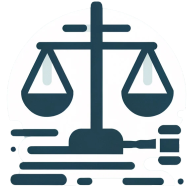How Do You Balance Legal Advice With Corporate Social Responsibility?
In the intricate dance between the letter of the law and the spirit of corporate social responsibility, a Founder shares their approach to implementing ethical document review systems. Alongside this industry expert's perspective, we've gathered additional answers that delve into the nuances of aligning legal advice with CSR initiatives. From integrating CSR into legal compliance to ethically prioritizing rights over profits, discover how legal professionals navigate this complex terrain.
- Implement Ethical Document Review Systems
- Craft Policies Around Ethical Standards
- Integrate CSR into Legal Compliance
- Consult CSR Experts for Balanced Decisions
- Strategize for Legal and ESG Alignment
- Prioritize Rights Over Profits Ethically
Implement Ethical Document Review Systems
One instance where I had to balance legal advice with corporate social responsibility initiatives involved implementing a new document review system for a client in the pharmaceutical industry. While the project promised substantial revenue for our company, it also raised ethical questions regarding data privacy and patient confidentiality.
Recognizing the importance of upholding our commitment to corporate social responsibility, I spearheaded discussions with the client to ensure that the document review system complied with industry regulations and respected patients' rights. We collaborated with legal experts to implement robust data protection measures and establish strict protocols for handling sensitive information.
By prioritizing ethical considerations alongside legal obligations, we not only safeguarded our client's interests, but also upheld our company's commitment to ethical business practices and corporate social responsibility.
This experience reinforced the importance of integrating ethical principles into our legal services to ensure alignment with our broader values as a company.

Craft Policies Around Ethical Standards
To balance legal advice with corporate social responsibility, companies should ensure that their policies are crafted around sustainable and ethical standards. This involves integrating the concepts of corporate social responsibility into every aspect of decision-making processes. It often necessitates a thorough review of existing policies to find ways to enhance positive social impacts without compromising legal obligations.
Regular training for staff on ethical practices, alongside clear, sustainable goals, reinforces this balance. Companies should strive to become leaders in ethical business practices and encourage others to follow their example.
Integrate CSR into Legal Compliance
When incorporating corporate social responsibility into legal compliance frameworks, firms must evaluate both their legal requirements and their social impact goals simultaneously. By embedding CSR principles into the fabric of legal compliance, businesses can create a comprehensive approach that reflects their commitment to doing what is right for society and the environment. These frameworks should be regularly updated to adapt to new regulations and evolving social expectations.
Maintaining this dual focus can be complex, but it can lead to a more robust and respected company. It is vital to pursue continuous improvement in CSR integration, and seek ways to better serve the community.
Consult CSR Experts for Balanced Decisions
The consultation of corporate social responsibility experts during legal reviews is key to maintaining a balance between following the law and doing good for society. These experts can offer valuable insights into how legal decisions may affect wider social and environmental concerns, helping companies navigate complex issues. They can support the development of strategies that respect both legal constraints and CSR commitments.
Ensuring that decisions are ethically sound and legally compliant is a challenging but necessary goal for businesses aiming to have a positive impact. Reach out to a CSR expert to ensure informed, socially responsible decision-making.
Strategize for Legal and ESG Alignment
Merging legal mandates with environmental, social, and governance (ESG) objectives requires a strategic approach to corporate governance. This involves identifying areas where legal requirements overlap with ESG goals and using this as a foundation for crafting policies that promote sustainability. It's about thinking long-term and understanding that legal compliance and social responsibility go hand-in-hand in shaping a company's legacy.
Firms that successfully blend these elements not only uphold the law but also contribute positively to society and the environment. Every company should review its ESG strategies to ensure they are effectively aligned with legal obligations.
Prioritize Rights Over Profits Ethically
Prioritizing rights over profits in decision-making is an ethical stance that companies can take to balance legal advice with corporate social responsibility. This means evaluating the potential impacts of business decisions on stakeholders, not just shareholders, and opting for solutions that protect individual rights and community well-being. A rights-based approach to CSR can foster trust and loyalty among consumers and employees alike, creating a strong foundation for long-term success.
This prioritization may challenge conventional business tactics, but it can distinguish a company as a moral leader in its field. Commit to putting people first in your corporate decision-making processes.

